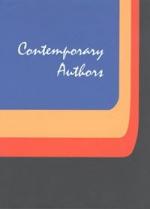|
This section contains 1,507 words (approx. 6 pages at 300 words per page) |

|
For Newby's artistic development the placing of the trilogy [consisting of The Picnic at Sakkara (1955), Revolution and Roses (1957), and A Guest and His Going (1959)] is important. It follows immediately his attempt to come to terms with his memories of World War II in A Step to Silence (1952) and The Retreat (1953), novels in which the imagination becomes circumscribed, myth fragments, connections falter, and sanctuary is reached (if at all) only after violence, death, and mental peril. The comic trilogy provides a form of catharsis from the terrible new knowledge. Though its vision of the contemporary condition is essentially that of the war novels, the tone shifts radically. The comic, of course, is not a completely new departure for Newby; even his most serious novels contain an undercurrent of humor that threatens to subvert the tragic potential with what is now fashionably called dark comedy. But as a dominant tone...
|
This section contains 1,507 words (approx. 6 pages at 300 words per page) |

|


